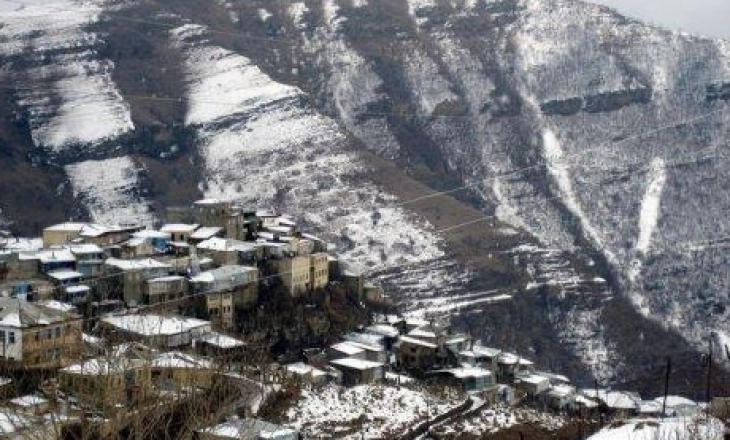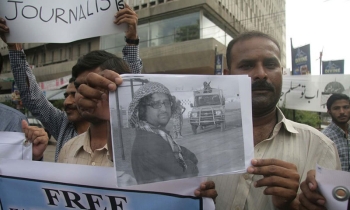The head of a news agency and his deputy have been missing for a week in Makhachkala, the capital of Dagestan, a republic in the Russian Caucasus. Khuda-Media director Abubark Rizvanov and his deputy, Timur Kurbanmagomedov, went missing after leaving their office at 4 p.m. on August 20 to buy a printer cartridge. After they failed to return, their colleagues tried to call them on their mobile phones without success.
The authorities have denied any involvement in their disappearance but according to Dosh (a magazine that won the Reporters sans Frontières-FNAC press freedom prize in the media category last year), they are being held inside the interior ministry on terrorism and extremism charges, and Rizvanov is suspected of having contacts with Islamic rebels.
Dosh also reported that the police had promised their families that Rizvanov would be able to see his lawyer and Kurbanmagomedov would be released, but neither promise has so far been kept. The staff of Dosh told Paris-based press freedom group Reporters sans Frontières (RSF) that if the families and lawyers of the two journalists have not been able to see them it might probably be because they have been mistreated and tortured, a common practice in a region where freedom of expression is not respected.
If the authorities are not holding Rizvanov and Kurbanmagomedov, RSF caclled on them to publicly attest to this and to initiate a thorough search for them. The press freedom organisation hoped that the two journalists will soon be reunited with their families, to whom it offers its moral support at this difficult time.
Launched in 2009, Khuda-Media provides local news and information and disseminates audio and video recordings of lectures by Dagestani Muslim theologians. It also distributes Russian translations of the lectures of Muslim preachers in Egypt, Syria, Britain, Australia and the United States. Muslims in both Dagestan and neighbouring regions use its services.










